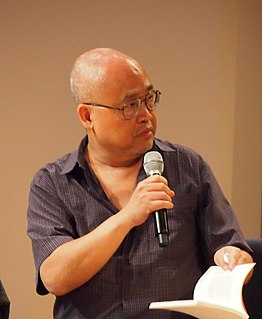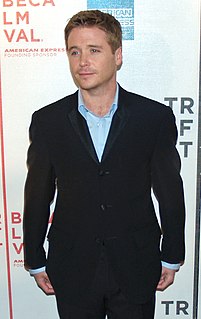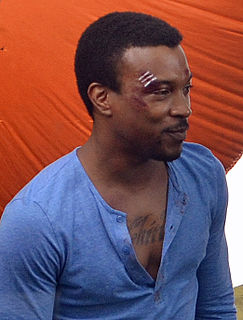A Quote by Larry Wilmore
Maybe I'll write an episode of 'Black-ish' about a guy being fired in late-night.
Related Quotes
I felt like it was a courageous show [Black-ish] from the beginning. We are a black family - we're not a family that happens to be black. But the show is not even about us being black. The show is about us being a family. That is groundbreaking - on TV, the black characters either happen to be black or they're the "black character," where everything they say is about being black. I think that's the genius.
There's no reason why you can't say "August Wilson, playwright" even though all of my work, every single play, is about black Americans, about black American culture, about the black experience in America. I write about the black experience of men, or I write about black folks. That's who I am. In the same manner that Chekhov wrote about the Russians, I write about blacks. I couldn't do anything else. I wouldn't do anything else.
The only thing that I would say to anyone doing late night shows is - it took me a couple years then - but when you leave the studio, it's over. That's what you really have to do. After a long time, I would be like, "Maybe I shouldn't have said this," or "Maybe I shouldn't have shown this." But eventually, I got to, "Ah, f - k it." That's what it was that night, tomorrow's the next night.
If you're on TV regularly, doing a thing regularly, whether you're Anthony Anderson on 'Black-ish' or Don Lemon, an hour a night, you have to turn into, 'What's the delivery system through which I can deliver information?' I don't mean they are being fake or that they are doing something that's disingenuous.
We do want the freedom to move scenes from episode to episode to episode. And we do want the freedom to move writing from episode to episode to episode, because as it starts to come in and as you start to look at it as a five-hour movie just like you would in a two-hour movie, move a scene from the first 30 minutes to maybe 50 minutes in. In a streaming series, you would now be in a different episode. It's so complicated, and we're so still using the rules that were built for episodic television that we're really trying to figure it out.
I always thought it would be funny to have the Parents Television Council write an episode of 'Family Guy' and give them full creative control. Then see how good the episode is. That's something we've actually discussed in the writers' room. We haven't proposed it yet, but if somebody from the PTC reads this, it might be worth discussing.
































